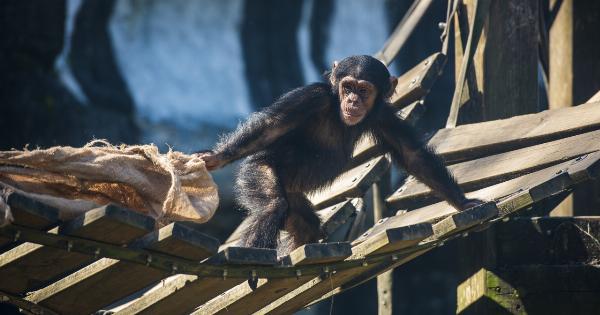The primate population in Europe is experiencing an unprecedented boom, leading to concerns about the ecological balance and the potential impact on native species.
This alarming trend has caught the attention of scientists, conservationists, and policymakers, who are now working to understand the causes and find solutions to manage this population explosion.
What is Driving the Boom?
Several factors have contributed to the rapid growth of Europe’s primate population. One key factor is climate change, which has created more favorable conditions for these primates to thrive.
Warmer temperatures and milder winters have extended their breeding seasons and allowed them to expand their territories.
Another factor is the decline of natural predators and the increase in available food sources. Human activities, such as deforestation and urbanization, have led to the fragmentation of habitats, forcing primates to adapt to new environments.
This has provided them with access to abundant food and reduced the risks they face from predators.
The Impact on Ecosystems
The exploding primate population is disrupting the delicate balance of ecosystems in Europe. As they compete for resources with native species, such as birds and small mammals, the presence of primates threatens their survival.
These primates feed on plants, fruits, and insects, depleting food sources that are crucial for the survival of other species.
Their foraging behavior also affects the dispersal of seeds, which can lead to changes in vegetation composition and distribution.
This alteration of plant communities has the potential to affect the stability and diversity of ecosystems, with far-reaching consequences.
The Challenge of Conservation
Conservationists are faced with the challenge of managing this population explosion in a way that protects biodiversity while also ensuring the welfare of the primates.
Efforts are focused on identifying areas where immediate action is needed, implementing sustainable management strategies, and raising public awareness about the importance of conservation.
One approach being considered is the establishment of protected areas that can provide safe havens for both primates and native species.
These areas would be carefully managed to restore and maintain the balance of ecosystems, ensuring the survival of all species involved.
Engaging Local Communities
Engaging local communities is crucial for the success of any conservation initiative. In many cases, these communities share their habitats with primates and have firsthand experience of the challenges they pose.
By involving them in conservation efforts, their traditional knowledge and practices can contribute to finding sustainable solutions.
Education and outreach programs play a vital role in raising awareness and fostering a sense of responsibility towards the environment.
By involving schools, community leaders, and the general public, conservation organizations can promote a culture of environmental stewardship and encourage sustainable practices.
Innovative Solutions
Scientists and researchers are exploring innovative solutions to mitigate the impact of the primate population explosion. One such solution is the use of contraception to control their numbers.
By implementing non-invasive techniques, such as immunocontraception, it is possible to reduce their reproductive rates and prevent further population growth.
Another approach is to develop corridors that connect fragmented habitats, allowing primates to travel safely between areas.
These corridors aid in maintaining genetic diversity and facilitating gene flow, ensuring the long-term viability of populations and reducing the risk of inbreeding.
The Role of International Collaboration
Given the transboundary nature of the primate population explosion, international collaboration is crucial for effective conservation.
Sharing knowledge, resources, and expertise between countries is essential to developing comprehensive strategies and coordinated management plans.
Organizations such as the European Primate Center and the International Union for Conservation of Nature (IUCN) provide platforms for collaboration and knowledge exchange.
Through joint research projects, capacity building, and policy advocacy, they work towards a sustainable future for both primates and their ecosystems.
Conclusion
The exploding primate population in Europe poses a significant threat to the continent’s ecosystems and biodiversity.
Urgent action is needed to understand the causes, implement effective conservation measures, and engage local communities in the process. By addressing this issue collectively and harnessing innovative solutions, we can ensure the coexistence of primates and native species while preserving the ecological balance for future generations.





























